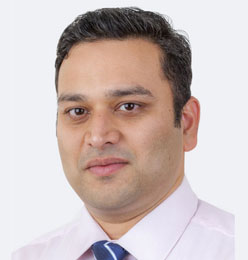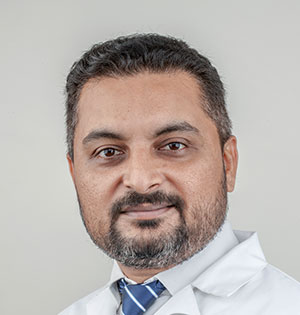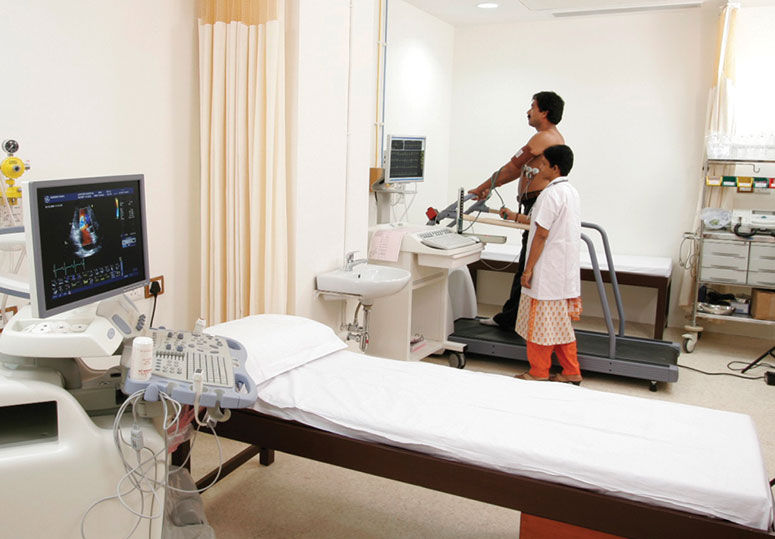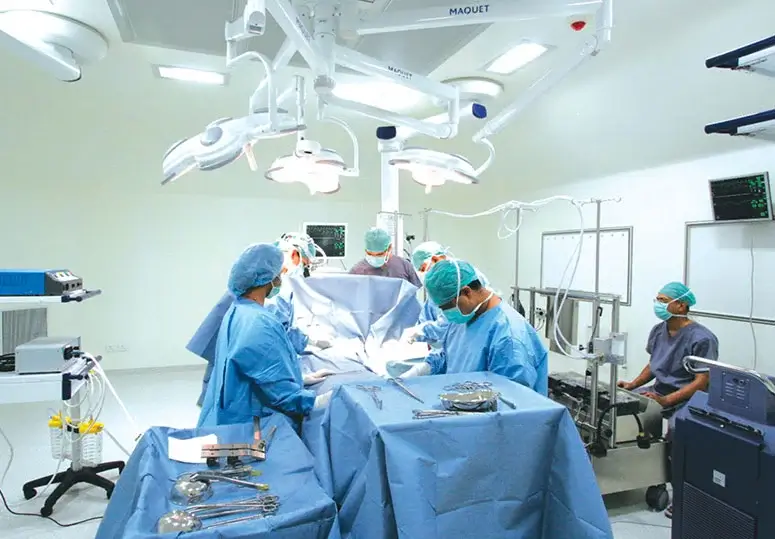Cardiac Surgery in Pune
Restore Heart Function, Quality of Life, and Well-being with Cardiac Surgery at Jupiter Hospital
At our esteemed Cardiac Surgery hospital in Pune, we are dedicated to providing exemplary cardiac surgery treatment infused with heartfelt care. We stand at the forefront of medical advancements, leveraging the latest technology and techniques to ensure the highest standards of healthcare. Our Cardiac Surgery Department is staffed with a team of renowned experts, including surgeons, cardiologists, cardiac anesthesiologists, and intensive care specialists. Together, they collaboratively devise the optimal treatment plans for our patients.
Pre-Operative Period
At Jupiter Hospital, we understand the importance of thorough preparation before your cardiac surgery. Our experienced medical team will discuss your procedure in detail with you. These conversations will help to explain the surgery, answer any questions you may have, and guide you through the entire process. In addition, we will conduct diagnostic tests to ensure a comprehensive approach to your care. We may perform a series of tests to get a complete picture of your cardiovascular health.
Intra-Operative Period
During your surgery at Jupiter Hospital, you can expect exceptional care from our highly skilled team. We are committed to providing advanced surgical techniques and close monitoring and support. Our skilled surgeons utilize the latest advancements in cardiac surgery to minimize discomfort and promote a faster recovery for you. Throughout the procedure, our team will be by your side, overseeing all aspects of your care and ensuring your safety.
Post-Operative Period
Your journey to recovery doesn't end after surgery. At Jupiter Hospital, we're committed to your long-term health. Our post-operative care includes personalized instructions, close monitoring and post-operative care plan. You'll receive detailed instructions for your recovery at home, ensuring you have a clear understanding of the next steps. Our team will also closely monitor your progress to optimize your recovery. A post-operative care plan would further involve a personalized medication regimen and lifestyle adjustments to promote optimal healing.
Team
Looking for the Cardiac Surgeon in Pune
Guided by our philanthropic principles and a commitment to prioritise patient well-being, we extend special healthcare packages that make our services accessible. Our infrastructure is designed with your comfort in mind, featuring well-lit and spacious areas to provide a healthcare experience that is both accommodating and pleasant.
Comprehensive Cardiac Care Under One Roof
We bring together an array of cardiac care services under one roof, from high-quality imaging and precise screening to a wide range of treatment options. Our comprehensive program is crafted to effectively monitor, assess, and treat our patients, promoting convenience and a holistic approach to cardiac healthcare.
Precision and Accuracy with Technology
We harness the capabilities of technology to deliver results that align with international standards. Our unwavering commitment to staying at the forefront of medical advancements ensures the highest levels of precision and accuracy. This enables us to proficiently handle even the most complex cases with the utmost expertise.
Hygiene and Sanitation Standards
Our commitment to optimal recovery extends to upholding the strictest benchmarks for hygiene and sanitation. Our Central Sterile Supply Department (CSSD) is carefully managed and our operation theatres are equipped with laminar airflow facilities to maintain impeccable air quality. These measures safeguard the safety and well-being of our patients throughout surgical procedures.
The Cardiac Surgery Department in Pune’s Jupiter hospital is spearheaded by a dedicated and expert team specialising in intricate procedures like bypass surgery. Bypass surgery is a vital procedure meticulously crafted to restore normal blood circulation throughout the body, effectively bypassing clogged or damaged arteries. We are committed to prioritising the usage of contemporary facilities and treatment modalities, ensuring a seamless experience for our patients at every stage, from preoperative preparations to peri-operative care and post-operative recovery.
Exploring Bypass Surgery
Heart bypass surgery, medically known as Coronary Artery Bypass Graft (CABG), is a sophisticated procedure designed to address either completely or partially blocked arteries. The primary goal is to redirect blood flow by creating a bypass, utilising a healthy blood vessel sourced from the patient's leg or arm. It's crucial to note that while CABG doesn't treat the underlying condition responsible for artery blockage, it plays a pivotal role in relieving symptoms, enhancing heart function, and mitigating the risks of cardiac arrest and heart failure.
Understanding Why Bypass Surgery is Recommended
Bypass surgery is often suggested for patients facing specific cardiac conditions, including:
- Severe Angina (Chest Pain): This procedure is a common recommendation for individuals grappling with severe chest pain resulting from narrowed arteries.
- Multiple Damaged Arteries and Dysfunctional Left Ventricle: Bypass surgery presents a viable solution if two or more arteries are compromised, and the left ventricle of the heart is not functioning optimally.
- Severely Diseased or Blocked Left Main Coronary Artery: Patients with a severely diseased or blocked left main coronary artery can find a vital solution through bypass surgery.
- Stenotic Arteries Unsuitable for Angioplasty and Stent Placement: Bypass surgery also turns out to be beneficial in cases where arteries are too narrow or stenotic for simple angioplasty and stent placement.
Navigating the Types of Bypass Surgeries
Bypass surgery is available in three primary forms, each designed to suit the individual needs of patients. These different techniques are as described below:
- Conventional Bypass Surgery: Entailing the utilisation of a heart-lung machine in this traditional approach, it follows the open-heart method.
- Off-Pump Bypass Surgery: In this method, bypass surgery is performed without the heart-lung bypass machine. Special equipment is employed to stabilise the heart during the procedure.
- Minimally Invasive Bypass Surgery: This modern and innovative technique integrates robotics and video imaging technology via small keyhole incisions in the patient's chest.
Understanding the Benefits of Bypass Surgery
The health benefits that come with opting for bypass surgery are:
- Chest pain and discomfort relief
- The opportunity to return to a normal lifestyle
- Reduced risks of cardiac arrest and heart failure
- Improved survival rates
These advantages demonstrate the value of bypass surgery as a crucial option for individuals dealing with specific cardiac conditions.
We are committed to providing care for patients grappling with heart failure. Our facility is equipped with modern resources and treatment modalities, all under the guidance of our dedicated specialists.
Understanding Heart Failure
Heart failure, often referred to as congestive heart failure, is a condition marked by the heart's inability to efficiently pump blood. This condition can be attributed to various underlying heart issues, including coronary artery disease, high blood pressure, damaged heart valves, cardiomyopathy, myocarditis, arrhythmia, or congenital heart defects.
At our Cardiac Surgery hospital in Pune, we specialise in Cardiac Surgery treatment for heart failure and related conditions. Rely on our experienced team to deliver optimum care and treatment options.
Heart Failure Diagnosis
Diagnosing heart failure is a meticulous process that involves a comprehensive physical evaluation and a battery of screenings and tests. These may encompass:
- Blood tests
- Chest X-rays
- Electrocardiogram (ECG)
- Echocardiogram
- Stress test
- Coronary angiography
- Coronary angiogram
- Myocardial biopsy
- Magnetic resonance imaging (MRI) scan
- Cardiac computerised tomography (CT) scan
These diagnostic tests are essential for healthcare professionals to accurately assess and diagnose heart failure, enabling them to customise treatment plans as per each patient's specific needs.
Cardiac Failure Treatment Options
Managing congestive heart failure involves a spectrum of treatment options, such as:
- Coronary Bypass Surgery: A critical procedure, Coronary Bypass Surgery is conducted on severely blocked coronary arteries. The primary goal is to restore regular blood flow by constructing a bypass using a healthy blood vessel harvested from the patient's arm, leg, or chest.
- Heart Valve Repair or Replacement: Surgical intervention is instrumental in mending or substituting impaired heart valves. The choice between traditional open-heart surgery and less invasive methods is made on the basis of a patient's preference and a thorough medical evaluation.
- Implantable Cardioverter-Defibrillators (ICDs): Commonly referred to as ICDs, these are electronic devices surgically placed just under the skin within the chest cavity. Generating electrical pulses is their core function, which effectively regulates the heartbeats of patients grappling with arrhythmia.
- Ventricular Assist Devices (VADs): Sometimes called mechanical circulatory support devices, VADs are mechanical pumps surgically implanted in the abdominal or chest cavity. These devices play a crucial role in augmenting the heart's ability to efficiently pump blood, providing an excellent option for patients in need of a heart transplant.
- Heart Transplant: In cases of severe and unresponsive heart failure, a heart transplant represents the ultimate solution. This procedure entails the replacement of a malfunctioning or non-functional heart with a healthy donor heart obtained from a deceased individual.
The expert healthcare team specialising in our Cardiac Surgery treatment in Pune provide personalised care for individuals grappling with heart failure.
We, at Jupiter Hospital in Pune, offer various modern surgical techniques and methods, with a special focus on the constantly evolving minimal access surgeries.
Understanding Minimal Access Surgeries
Minimal access surgeries encompass a spectrum of minimally invasive procedures conducted through tiny incisions. These methods use specialised imaging technology and robotic methods to enhance precision while minimising surgical invasiveness. In our unwavering pursuit of excellence, we provide access to minimal access procedures as a vital component of our comprehensive Cardiac Surgery treatment in Pune
When Is Minimal Access Heart Surgery Recommended?
Minimal access heart surgery is performed for a variety of crucial medical reasons, which include:
- Mitral valve repair or replacement
- Tricuspid valve repair or replacement
- Aortic valve repair or replacement
- Atrial septal defect repair
- Atrioventricular septal defect correction
- Coronary artery bypass surgery
- MAZE procedure for atrial fibrillation
- Placement of a ventricular assist device
Benefits of Minimally Invasive Heart Surgery
- Lesser blood loss during the operative procedure
- Lower risk of infections post-surgery
- Mitigation of trauma and discomfort after the operation
- Quicker recovery period, allowing patients to resume their regular activities sooner
- Minimal scarring, enhancing the overall cosmetic outcome and patient comfort
By choosing minimally invasive heart surgery, patients can experience these advantages while effectively addressing a range of cardiac conditions.
Patients Speak
Hear the heartwarming stories of patients overcoming difficult afflictions
















 View Map
View Map Book an Appointment
Book an Appointment Find a Doctor
Find a Doctor Health Check-up
Health Check-up
















 Find a Doctor
Find a Doctor Health Checkup
Health Checkup Book an Appointment
Book an Appointment